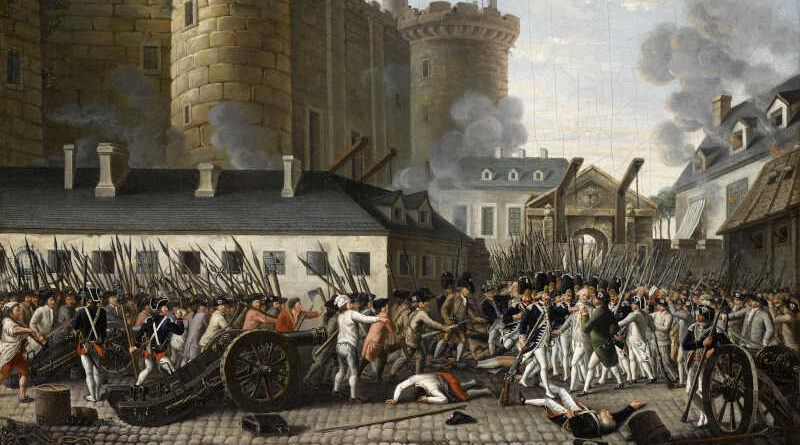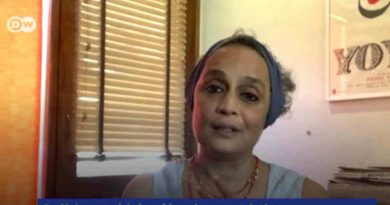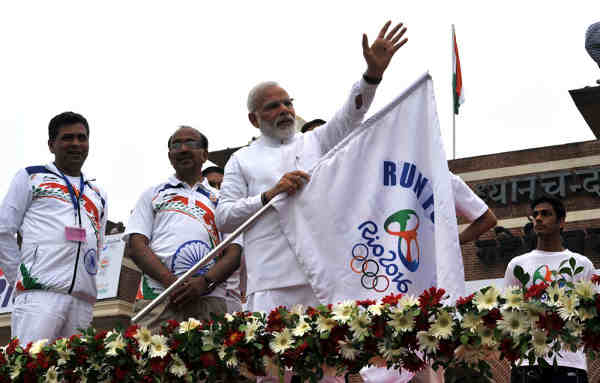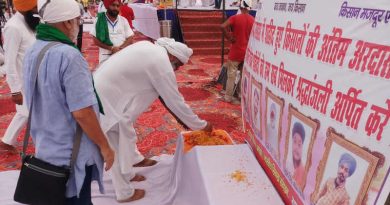Signs of French Revolution Appear in Sri Lanka, India, Pakistan

While the socio-economic situation is worse in India under the government of PM Narendra Modi, there is no demand for his resignation because the opposition parties are extinct and the opposition leaders exist as zombies.
By Rakesh Raman
Amid nationwide protests and violence on the streets, Sri Lankan prime minister (PM) Mahinda Rajapaksa resigned on May 9. Protesters had been demanding Rajapaksa’s resignation as he failed to combat the economic crisis in the South Asian nation.
A severe foreign exchange shortage in Sri Lanka had resulted in a short supply of essential household items such as fuel, food, and medicines, and the inflation had skyrocketed.
PM Rajapaksa agreed to resign when President Gotbaya Rajapaksa in a special meeting on May 6 advised him to step down as a solution to tackle the situation of civil unrest in the country. After the resignation of the PM, the Sri Lankan President is expected to invite all the political parties in Parliament to form an all-party Cabinet.
But the protestors were not satisfied, as they attacked and set on fire the houses of at least 31 politicians, including Mahinda Rajapaksa’s ancestral house. When thousands of anti-government protesters barged into Rajapaksa’s official residence in Colombo, he and his family were rescued in a pre-dawn operation by the military. The police failed to control the angry crowds.
Protesters contend that the resignation of Rajapaksa will not help revive the dead economy and Rajapaksa along with his family must face the fate that King Louis XVI faced during the French Revolution.
SIGNS OF FRENCH REVOLUTION
The violent protests in Sri Lanka had the shades of the French Revolution (1789 – 1799) which led to the Storming of the Bastille and beheading of King Louis XVI who was executed by guillotine to end his monarchy in 1793.
The Storming of the Bastille in Paris, France, on 14 July 1789 happened when revolutionaries stormed and seized control of the medieval armory, fortress, and political prison known as the Bastille.
Since the Bastille represented royal authority for the rulers in Paris, the revolutionaries denounced it as a symbol of the monarchy’s abuse of power. Therefore, its fall was the flashpoint of the French Revolution.
The common people of France had started the French Revolution to achieve radical political and societal change and to establish the fundamental principles of liberal democracy.
Since the regime at that time was not able to tackle social and economic chaos in France, a decade of violent protests by commoners achieved peace and prosperity in the country which is now among the leading and most developed European nations.
Before the French Revolution, the society was divided into three classes: clergy; nobility, and the commons. Despite representing more than 95% of the population, the commons (ordinary citizens) did not enjoy full rights and were persecuted by the clergy and the nobility while both these affluent classes were largely exempt from tax and enjoyed state privileges.
The French Revolution, in fact, was a class conflict between the poor working class known as the proletariat and the rich known as the bourgeois. In order to crush the voices of the poor revolutionaries, the French monarchy raised a force of “counter-revolutionaries” who were blind followers of the ruling class.
While the French Revolution helped France emerge as a powerful nation in the world, it is now inspiring the commoners in the underdeveloped economies such as Sri Lanka, India, and Pakistan to follow the same path to achieve democracy and economic stability.
The people in these poor countries are finally trying to emulate the French Revolution model to dethrone the modern-day monarchs. Sri Lanka has already applied the French Revolution model.
REVOLUTION IN INDIA AND PAKISTAN
Now, a similar resistance movement is expected in India and Pakistan, where the corrupt and cruel rulers have failed to maintain peace and economic stability while the citizens are struggling to survive.
After a series of public protests led by opposition parties against Imran Khan’s failure to revive the economy in Pakistan, he was removed from the PM position last month (April 2022).
While the socio-economic situation is worse in India under the government of PM Narendra Modi, there is no demand for his resignation because the opposition parties are extinct and the opposition leaders exist as zombies.
Most lazy opposition leaders keep sitting shamelessly on Twitter to curse Modi and his policies, but they never lead crowds on the streets to get Modi removed.
| Similarities between the situation that led to the French Revolution and the current situation in India | |
| France | India |
| King Louis XVI | PM Modi |
| Monarchy | Parliamentary Dictatorship |
| Socio-Economic Chaos | Socio-Economic Chaos |
| Civil Unrest | Suppression of Civil Unrest |
| Clergy and the Nobility | Corrupt Politicians, Bureaucrats, Ministers, Police, Judges, and Kleptocrats |
| Rich-Poor Class Conflict | Rich-Poor Class Conflict |
| Counter-revolutionaries | Hooligans (a.k.a. Bhakts) who masquerade as Hindus |
| Lawlessness | Lawlessness |
| Active Revolution | Passive and Weak Protests |
| Peace and Stability | Unrest Continues |
The people in India are also so timid that they never hold demonstrations against the Modi regime and prefer to die silently under extreme corruption, human rights abuses, inflation, poverty, deadly diseases, religious hatred, and unemployment.
Like in Sri Lanka, according to reports, India’s foreign exchange (FX) reserves fell below $600 billion for the first time in a year, weighed by persistent capital outflows and the rupee’s weakness.
In collusion with his ministers who behave like his slaves, corrupt bureaucrats, criminal police personnel, and complicit courts, Modi has already reduced India to the level of a lawless state and now he is hell-bent to ruin India to an extent that the country of 1.4 billion people will disappear from the world map.
So, the ordinary people of India – the hoi polloi – must form groups and protest against Modi and his party asking them to resign. Then a council of domain experts – who do not belong to any political party – must be constituted to run the government in India.
By Rakesh Raman, who is a national award-winning journalist and social activist. He is the founder of a humanitarian organization RMN Foundation which is working in diverse areas to help the disadvantaged and distressed people in the society.
He has also launched the “Power Play: Lok Sabha Election 2024 in India” editorial section to cover the news, events, and other developments related to the upcoming election.





